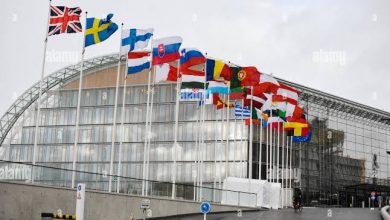
By: Mohamed Salah
Director, Chief producer
Diplomat.Today, Investor.Today
The Joint Declaration on the Strategic and Comprehensive Partnership between Egypt and the European Union, signed on March 17, 2024, marks a significant milestone in the long-standing relationship between these two entities. This partnership, rooted in mutual respect and shared interests, aims to deepen cooperation across various domains, from political and economic stability to security and human capital development. Understanding the importance of this partnership requires a look into the historical background, the current situational analysis, and the strategic directions both parties are committed to pursuing.

Why Egypt is Important to the EU
Egypt holds a strategic geo-political position at the crossroads of Africa, the Middle East, and the Mediterranean. Its stability and prosperity are crucial for regional security and economic stability. Here are several reasons why Egypt is significant to the EU:
- Geopolitical Stability: Egypt’s role as a stabilizing force in a volatile region is vital. It acts as a buffer against extremism and helps to maintain regional peace.
- Migration Control: Egypt’s cooperation is essential in managing migration flows to Europe, particularly in combating irregular migration and human trafficking.
- Energy Security: Egypt’s potential in renewable energy and its strategic location for energy transit routes make it a key partner for the EU’s energy diversification and security strategies.
- Economic Gateway: The Suez Canal is one of the world’s most critical maritime passages, facilitating significant trade volumes between Europe and Asia.
Why the EU is Important to Egypt
For Egypt, the European Union is an indispensable partner for several reasons:
- Economic Support: The EU is a major source of investment, trade, and development aid, which are crucial for Egypt’s economic growth and stability.
- Trade Relations: The EU is one of Egypt’s largest trading partners, providing a substantial market for Egyptian exports.
- Political Support: EU support for democratic reforms and human rights initiatives helps Egypt in its internal political stabilization efforts.
- Technological and Educational Cooperation: EU partnerships in education, research, and technology are vital for Egypt’s human capital development and modernization efforts.
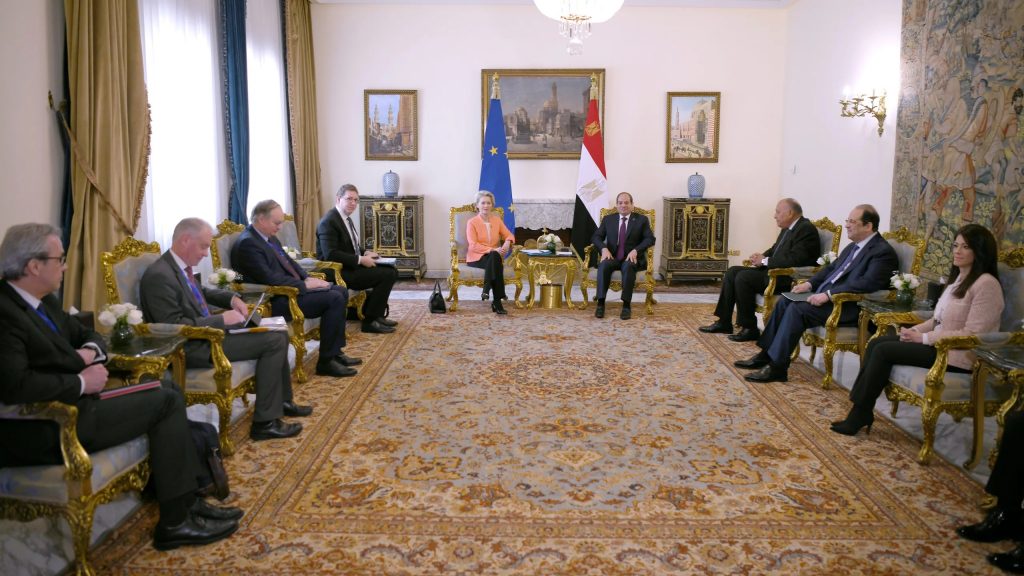
Historical Background
The relationship between Egypt and the EU has evolved over millennia, rooted in historical trade routes and cultural exchanges. The modern framework for this partnership was established with the signing of the Association Agreement in 2004, which laid the foundation for political dialogue, economic cooperation, and trade relations. This was further enhanced by the Partnership Priorities agreed upon in 2017, focusing on shared challenges such as security, economic development, and migration.
Situational Analysis
In recent years, the partnership has seen both challenges and opportunities. Egypt has faced economic pressures due to global economic instability, heightened borrowing costs, and regional conflicts. At the same time, the EU has been dealing with internal and external pressures, including migration crises and energy security concerns. The COVID-19 pandemic also highlighted the interdependence of the two regions, emphasizing the need for stronger collaboration.
The recent declaration underscores a renewed commitment to addressing these challenges together. The substantial financial support package proposed by the EU, worth €7.4 billion for 2024-2027, including €200 million for migration management, demonstrates a significant investment in Egypt’s stability and development.
Strategic Direction and Areas of Cooperation
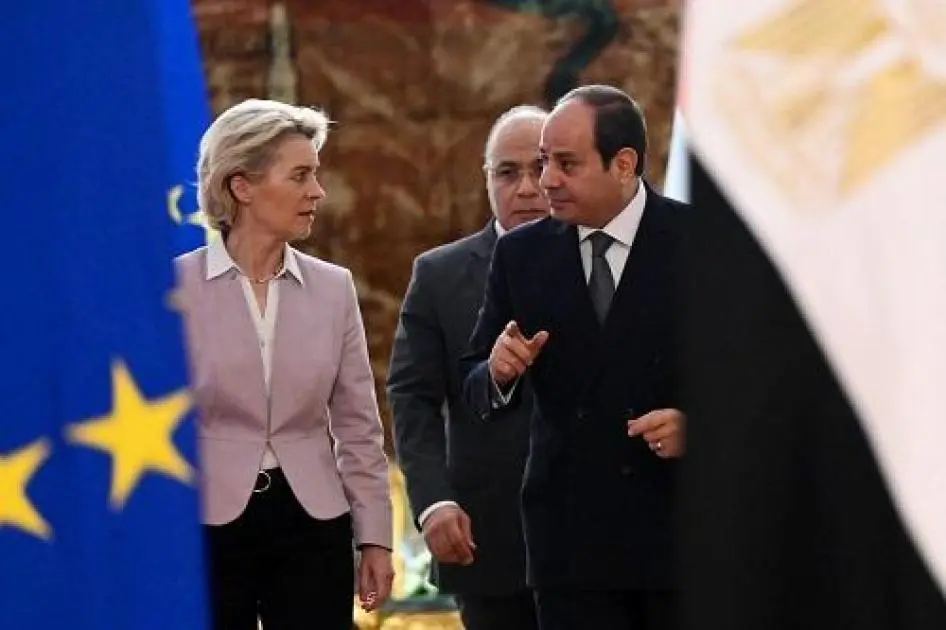
The Joint Declaration outlines several strategic directions and areas of cooperation that aim to unlock the full potential of the Egypt-EU relationship:
- Political Relations
- Democracy and Human Rights: Both parties are committed to promoting democracy, fundamental freedoms, human rights, gender equality, and equal opportunities. The EU supports Egypt’s National Strategy for Human Rights and will assist in its implementation.
- Political Dialogue: Regular summits and the annual Association Council meetings will enhance political dialogue, ensuring that both sides remain aligned on key issues.

- Macroeconomic Stability
- Economic Support: The EU will support Egypt’s 2030 development agenda to secure long-term macro-economic stability and sustainable growth. This includes providing budget support, concessional finance, and grants to address short-term stabilization needs.
- Investment Promotion: The EU will help unlock the potential of private sector investments through guarantees under the European Fund for Sustainable Development and Economic Investment Plan.
- Sustainable Investment and Trade
- Sectoral Investments: Focus areas include renewable energy, advanced industrialization, agriculture, food security, connectivity, digitalization, water security, and management.
- Business Environment: Efforts will be made to enhance Egypt’s business and investment environment, facilitating trade and investment flows in line with international obligations.
- Energy Cooperation
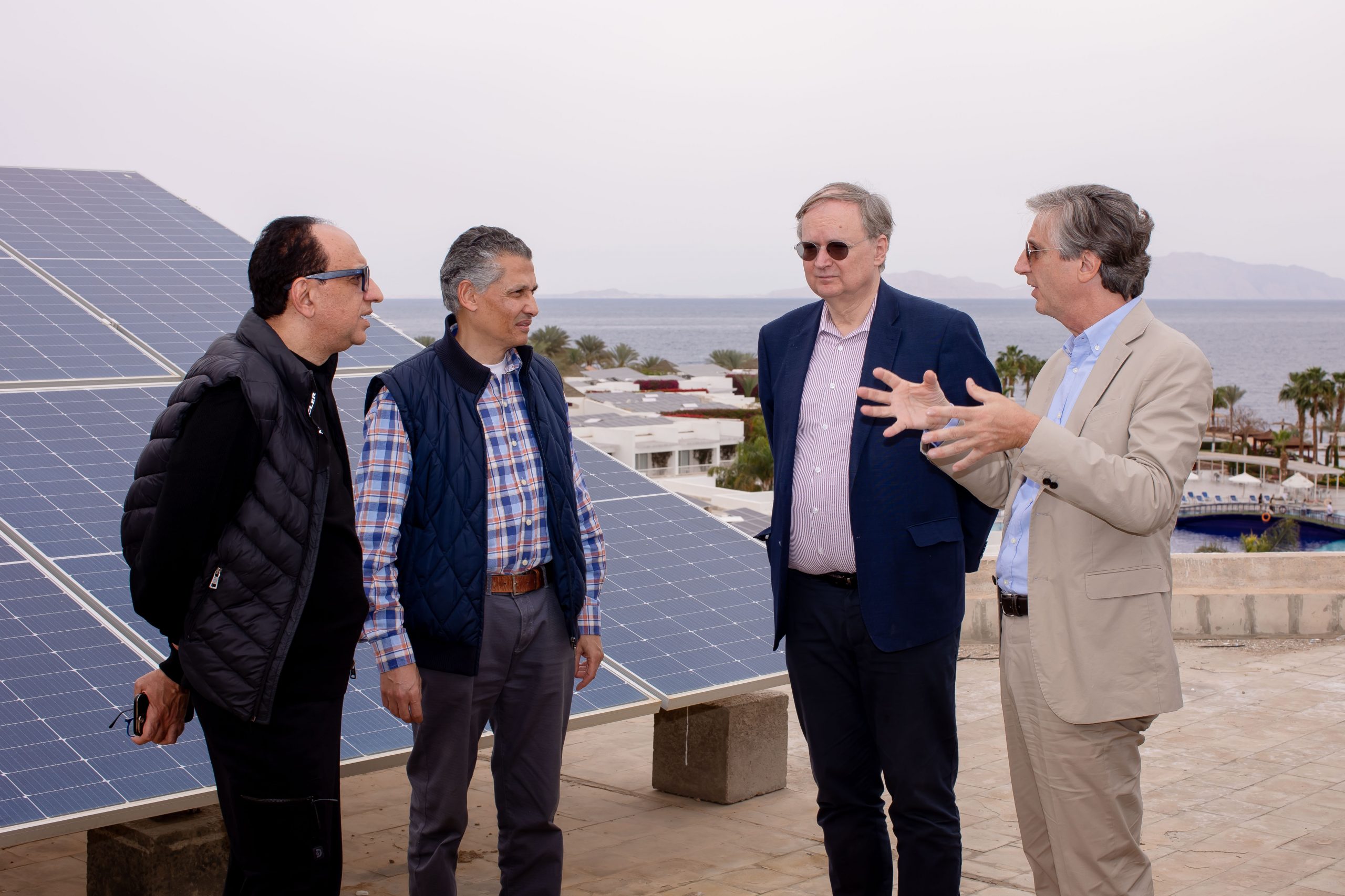
- Renewable Energy: Both parties will cooperate on renewable energy projects, energy efficiency actions, and other low-carbon technologies. The EU will support initiatives like the GREGY Interconnector and the East Med Gas Forum to bolster energy security.
- Energy Market Stability: The partnership aims to adapt to the new geopolitical and energy market realities by deepening existing cooperation.
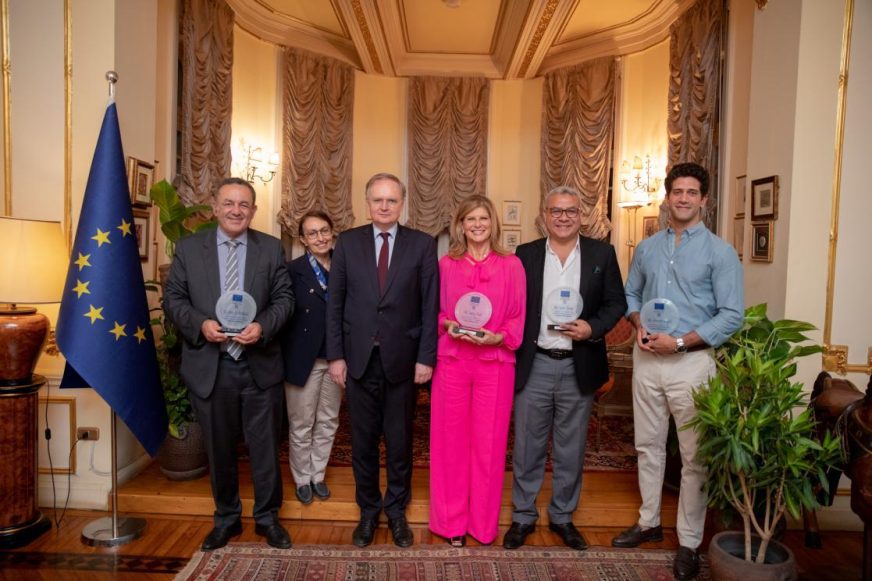
- Water Management
- Sustainable Practices: Joint efforts will focus on sustainable water resource management, addressing the challenges of growing populations and climate change.
- Support for Nile River Reliance: The EU reiterates its support for Egypt’s water security and adherence to international laws regarding the Nile River.
- Migration and Mobility
- Holistic Migration Governance: The EU will provide financial support for migration-related programs, including legal migration pathways and mobility schemes like Talent Partnerships. Efforts will be made to tackle the root causes of irregular migration and ensure dignified return and reintegration.
- Protection of Rights: Both parties are committed to protecting the rights of migrants and refugees, supporting Egypt’s efforts in hosting refugees.
- Security Cooperation
- Counter-Terrorism: Enhanced cooperation will focus on combating terrorism, cybersecurity threats, and organized crime. Joint initiatives will also address law enforcement training and capacity building.
- Cultural Goods Trafficking: Efforts will be made to prevent the trafficking of cultural goods and ensure the restitution of illicitly trafficked cultural properties.
- Human Capital Development
- Education and Training: The EU will support technical and vocational education and training, aligning skills with labor market needs. Programs like PRIMA, Erasmus+, and potential EU-Egypt University initiatives will enhance educational cooperation.
- Research and Innovation: Increased participation in EU programs such as Creative Europe, Horizon Europe, and the Digital Europe Programme will be promoted.
Conclusion
The strategic and comprehensive partnership between Egypt and the European Union represents a forward-looking commitment to mutual growth and stability. By addressing shared challenges and leveraging complementary strengths, this partnership aims to foster a more prosperous and secure future for both regions. The detailed areas of cooperation outlined in the Joint Declaration provide a robust framework for achieving these goals, underscoring the importance of this relationship in a rapidly changing global landscape.

